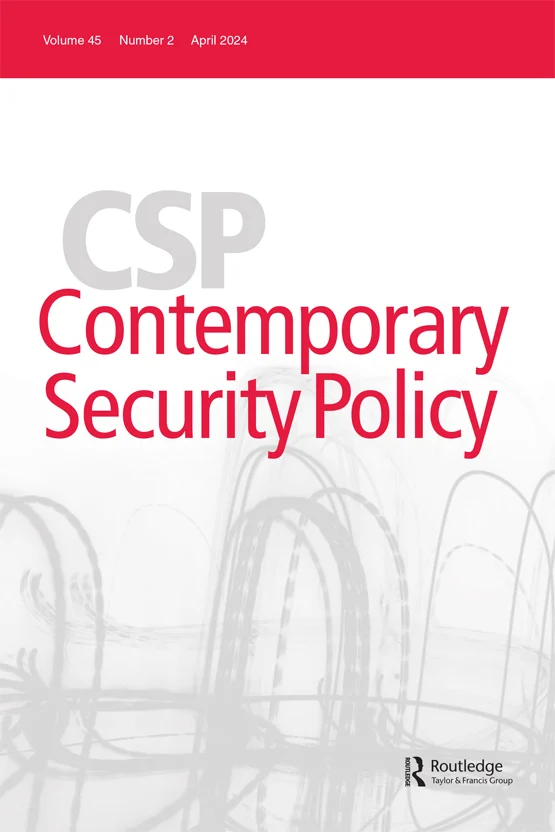The ambiguity of hybrid warfare: A qualitative content analysis of the United Kingdom's political–military discourse on Russia's hostile activities
IF 5
1区 社会学
Q1 INTERNATIONAL RELATIONS
引用次数: 10
Abstract
ABSTRACT Since the annexation of Crimea in 2014, hybrid warfare has become a widely used yet ambiguous term to describe Russia's hostile activities. In academic publications and policy documents, there have been a plethora of different definitions and concepts to make sense of hybrid warfare. This article takes a bottom-up approach and analyzes the discourse of political and military representatives in the United Kingdom to explore how they understand hybrid warfare by Russia and what the implications are for defense policy. Using qualitative content analysis with quantitative aspects, the results show not only a range of different terms used to describe Russia's hostile activities, but also that the discussed topics do not reflect one particular definition of hybrid warfare. The analysis further reveals that representatives highlight non-military aspects of hybrid warfare over the military ones and consider the role of defense policy dependent on the nature of a particular hybrid threat.混合战争的模糊性:英国对俄罗斯敌对活动的政治-军事话语的定性内容分析
自2014年吞并克里米亚以来,混合战争已经成为一个被广泛使用但又模棱两可的术语来描述俄罗斯的敌对活动。在学术出版物和政策文件中,有大量不同的定义和概念来解释混合战争。本文采用自下而上的方法,分析了英国政治和军事代表的话语,以探讨他们如何理解俄罗斯的混合战争以及对国防政策的影响。通过定量方面的定性内容分析,结果不仅显示了用于描述俄罗斯敌对活动的一系列不同术语,而且所讨论的主题并没有反映混合战争的一个特定定义。分析进一步表明,代表们强调混合战争的非军事方面,而不是军事方面,并考虑国防政策的作用取决于特定混合威胁的性质。
本文章由计算机程序翻译,如有差异,请以英文原文为准。
求助全文
约1分钟内获得全文
求助全文
来源期刊

Contemporary Security Policy
Multiple-
CiteScore
14.60
自引率
6.80%
发文量
22
期刊介绍:
One of the oldest peer-reviewed journals in international conflict and security, Contemporary Security Policy promotes theoretically-based research on policy problems of armed conflict, intervention and conflict resolution. Since it first appeared in 1980, CSP has established its unique place as a meeting ground for research at the nexus of theory and policy.
Spanning the gap between academic and policy approaches, CSP offers policy analysts a place to pursue fundamental issues, and academic writers a venue for addressing policy. Major fields of concern include:
War and armed conflict
Peacekeeping
Conflict resolution
Arms control and disarmament
Defense policy
Strategic culture
International institutions.
CSP is committed to a broad range of intellectual perspectives. Articles promote new analytical approaches, iconoclastic interpretations and previously overlooked perspectives. Its pages encourage novel contributions and outlooks, not particular methodologies or policy goals. Its geographical scope is worldwide and includes security challenges in Europe, Africa, the Middle-East and Asia. Authors are encouraged to examine established priorities in innovative ways and to apply traditional methods to new problems.
 求助内容:
求助内容: 应助结果提醒方式:
应助结果提醒方式:


